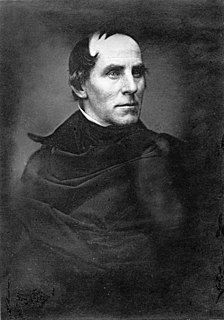A Quote by Pablo Picasso
Let them understand above all that the artist works from necessity; that he, too, is a minute element of the world to whom one should ascribe no more importance than so many things in nature which charm us but which we do not explain to ourselves.
Related Quotes
Everyone wants to understand art. Why not try to understand the song of a bird? Why does one love the night, flowers, everything around one, without trying to understand them? But in the case of a painting people have to understand. If only they would realize above all that an artist works of necessity, that he himself is only a trifling bit of the world, and that no more importance should be attached to him than to plenty of other things which please us in the world, though we can't explain them. People who try to explain pictures are usually barking up the wrong tree.
Let there be two possible things, A and B, one of which is such that it is necessary that it exists, and let us assume that there is more perfection in A than in B. Then, at least, we can explain why A should exist rather than B and can foresee which of them will exist; indeed, this can be demonstrated, that is, rendered certain from the nature of the thing.
Do you not think that there are things which you cannot understand, and yet which are; that some people see things that others cannot? But there are things old and new which must not be contemplate by men´s eyes, because they know -or think they know- some things which other men have told them. Ah, it is the fault of our science that it wants to explain all; and if it explain not, then it says there is nothing to explain.
As it is the nature of a kite to devour little birds, so it is the nature of some minds to insult and tyrannize over little people; this being the means which they use to recompense themselves for their extreme servility and condescension to their superiors; for nothing can be more reasonable than that slaves and flatterers should exact the same taxes on all below them which they themselves pay to all above them.
The composer reveals the innermost nature of the world, and expresses the profoundest wisdom in a language that his reasoning faculty does not understand, just as a magnetic somnambulist gives information about things of which she has no conception when she is awake. Therefore in the composer, more than in any other artist, the man is entirely separate and distinct from the artist.
The human understanding is of its own nature prone to suppose the existence of more order and regularity in the world than it finds. And though there be many things in nature which are singular and unmatched, yet it devises for them parallels and conjugates and relatives which do not exist. Hence the fiction that all celestial bodies move in perfect circles, spirals and dragons being (except in name) utterly rejected.
One should not understand this compulsion to construct concepts, species, forms, purposes, laws ('a world of identical cases') as if they enabled us to fix the real world; but as a compulsion to arrange a world for ourselves in which our existence is made possible:-we thereby create a world which is calculable, simplified, comprehensible, etc., for us.
. . .nature is still predominant, and there are those who regret that with the improvements of cultivation the sublimity of the wilderness should pass away: for those scenes of solitude from which the hand of nature has never been lifted, affect the mind with a more deep toned emotion than aught which the hand of man has touched. Amid them the consequent associations are of God the creator-they are his undefiled works, and the mind is cast into the contemplation of eternal things.
There is a form of eminence which does not depend on fate; it is an air which sets us apart and seems to prtend great things; it is the value which we unconsciously attach to ourselves; it is the quality which wins us deference of others; more than birth, position, or ability, it gives us ascendance.





































